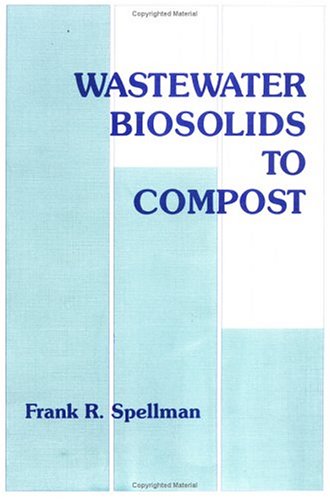FROM THE INTRODUCTION
The purpose of this text is to address one small but important and significant aspect (or process) of making man-made waste disposal more earth-friendly: biosolids composting. Since 1970, much progress has been made in sewage treatment technology. Corrective actions in treating domestic and industrial wastes have advanced to the point and have been underway for a long enough period now so that today one can visit most local lakes and streams and clearly see the lake or river bottom near a shallow shoreline. This, of course, is an example of an environmental improvement that can be readily seen. This visible improvement is also a "predictor" of what the future can hold for present and future generations who respect lakes and streams, and thus the environment.
Recent improvements in the water quality of streams and lakes are only a small part of the progress that has been made. Improvements in wastewater technology have also worked to improve the quality of water we use; that is, the water we drink.
This last statement may seem strange to some readers. How does wastewater treatment improve the quality of potable water when we do not receive our drinking water from wastewater treatment plant effluent? Effluent from wastewater treatment plants in not normally cross-connected with their municipality's drinking water supply. Many communities draw water from streams and rivers for use in domestic potable water supplies and these same streams and rivers serve as outfalls, normally upstream, for wastewater treatment plant effluent. Communities are growing. Populations within these burgeoning communities are also growing. Along with growth in community size and in population is a corresponding growth in the need for more potable water. Thus, the stream or river that provides the water supply and serves as the outfall for wastewater treatment plant effluent is put under increasing demand for its main product: potable water.
Wastewater Biosolids to Compost covers EPA 503 regulations, testing procedures, advancements in odor control, marketing the product, and composting program economics.
- ISBN10 1566764610
- ISBN13 9781566764612
- Publish Date 1 October 1996
- Publish Status Active
- Publish Country US
- Publisher Taylor & Francis Inc
- Imprint CRC Press Inc
- Format Hardcover
- Pages 245
- Language English
